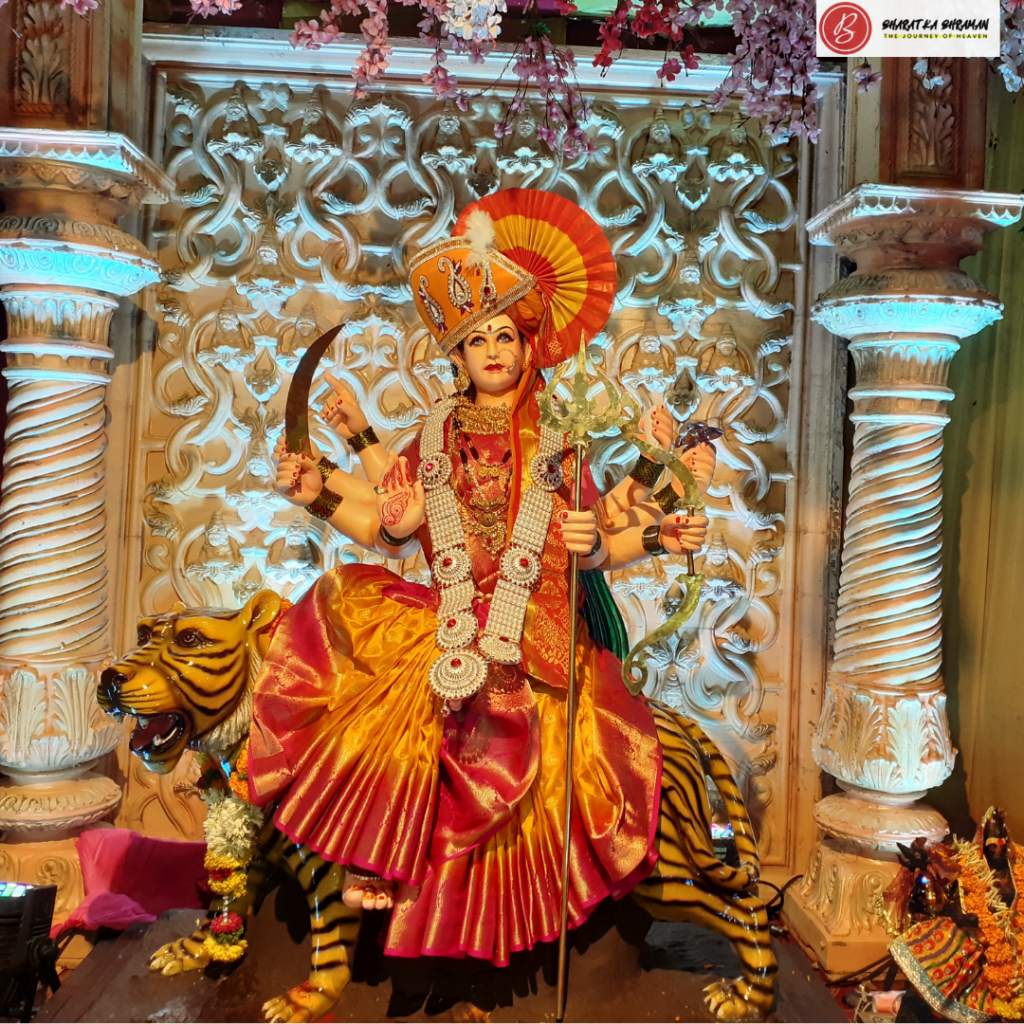Introduction: Navratri is one of the most vibrant and widely celebrated Hindu festivals in India and among Hindus worldwide. The word ‘Navratri’ is derived from two Sanskrit words: ‘Nav’ meaning nine and ‘Ratri’ meaning nights. This festival spans nine nights and is dedicated to the worship of the Hindu goddess Durga in her various forms. Each night holds a special significance and is marked by colorful rituals, dances, and feasts. In this blog, we will delve into the essence of Navratri, its duration, significance of each night, where and how to celebrate it, and even how to make it memorable at home.
Duration of Navratri: Navratri typically occurs in the Hindu lunar month of Ashwin, which usually falls in September or October. It lasts for nine nights and ten days, with the tenth day being celebrated as Vijayadashami or Dussehra. These nine nights are divided into three sets of three nights each, dedicated to different forms of the goddess Durga.
The Significance of Each Night:
- 1st-3rd Nights: Goddess Durga
- First Night: The festival begins with the worship of Shailaputri, the daughter of the Himalayas, symbolizing purity and strength.
- Second Night: Brahmacharini, the goddess of asceticism and penance, is honored on this night.
- Third Night: On this night, Chandraghanta, who represents bravery and grace, is worshipped.
- 4th-6th Nights: Goddess Lakshmi
- Fourth Night: Kushmanda, the goddess of creativity and cosmic energy, is venerated.
- Fifth Night: Skandamata, the mother of Lord Kartikeya, is revered as a symbol of motherhood.
- Sixth Night: Katyayani, the warrior goddess, is worshipped for her valor.
- 7th-9th Nights: Goddess Saraswati
- Seventh Night: Kalratri, the fierce form of Durga, is honored for her protection.
- Eighth Night: Maha Gauri, the epitome of peace and compassion, is worshipped.
- Ninth Night: Siddhidatri, the goddess of wisdom and knowledge, marks the culmination of Navratri.

Where to Celebrate Navratri: Navratri is celebrated with immense fervor and enthusiasm across India. Some of the best places to witness the grandeur of Navratri celebrations include:
- Gujarat: The state is famous for its traditional Garba and Dandiya Raas dances during Navratri, especially in cities like Ahmedabad and Vadodara.
- West Bengal: In Kolkata, Navratri coincides with Durga Puja, and the city comes alive with beautifully decorated pandals (temporary temples) and processions.
- Mysuru, Karnataka: The Mysuru Dasara is a grand celebration during Navratri, featuring a procession of caparisoned elephants and cultural events.
- Varanasi, Uttar Pradesh: Navratri celebrations here involve Ganga Aarti and special prayers at temples along the banks of the Ganges.
How to Reach Navratri Celebrations: Depending on your chosen destination, you can reach Navratri celebrations by air, train, or road. Major cities in India have well-connected airports and railway stations. Once you arrive, local transportation options like taxis, auto-rickshaws, and public buses are readily available.
Celebrating Navratri at Home: If you cannot travel to one of these destinations, you can create a beautiful Navratri celebration at home. Here’s how:
- Decorate: Adorn your home with marigold flowers, rangoli designs, and traditional lamps.
- Worship: Create a small altar for goddess Durga and offer prayers, flowers, and incense daily.
- Food: Prepare traditional dishes like puri, sabzi, and sweets. You can also fast during Navratri and enjoy fasting-friendly recipes.
- Dance and Music: Play Garba and Dandiya music to dance with family and friends.
- Invite: Invite friends and family to join in the celebrations.
In conclusion, Navratri is a magnificent festival that celebrates the divine feminine energy. It is a time of devotion, dance, and joyous festivities. Whether you choose to travel to one of the vibrant Navratri destinations or celebrate it at home, Navratri offers a profound spiritual experience and a chance to revel in the rich cultural heritage of India.
